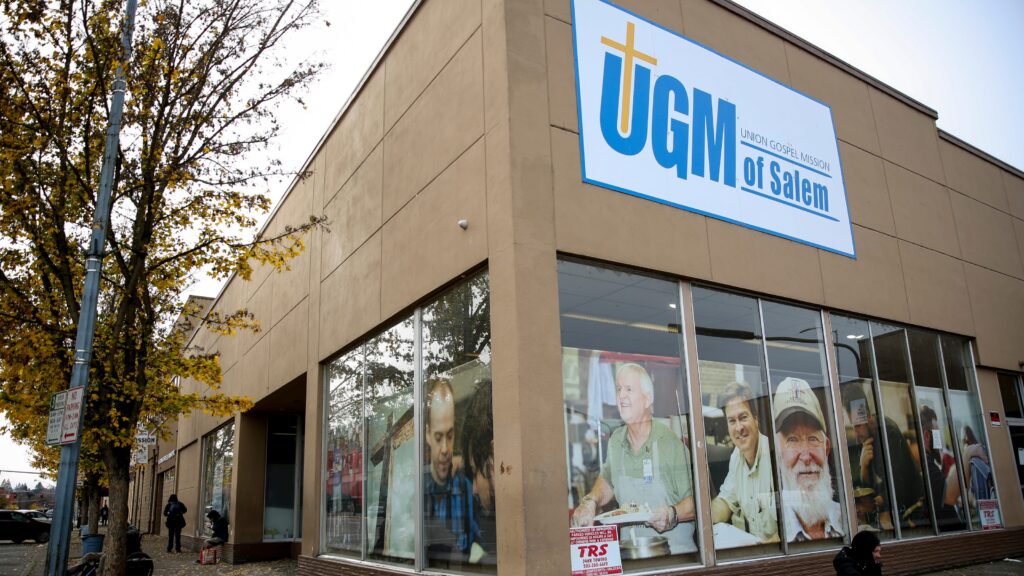Salem to pay private businesses to house homeless
4 min read
Up to 100 homeless people living in Salem are less than a week away from losing shelter. The city is turning to private businesses to house many of them, and it’s prepared to write a check to do so.
Shelter beds are occupied most nights in Salem, and demand has risen. The last Point-In-Time Count in 2019 conducted by the U.S. Department of Housing and Urban Development found 866 unsheltered people total were living in Marion and Polk Counties. That number is up 29% from 619 people in 2018 and 75% from 215 people in 2016.
About 100 people can be found camping alongside the freeway exit on Market St in East Salem on any given day. On Thursday, campers received notice from the Oregon Department of Transportation they had 10 days to leave.
According to ODOT officials, the notices were delayed some 16 months in light of the pandemic and CDC guidelines which discouraged moving homeless residents away from services and spreading the virus. Other camp removals are on the agency’s calendar, officials added.
“ODOT responds to public concerns about camping on the state highway right of way,” said ODOT spokesperson Louis Torres in a statement. “We do respect the circumstances of the campers and the concerns of neighbors while following state law.”
For the residents of the camps who survived triple-digit temperatures three days straight in June, their future is uncertain. Most have no idea where they will go.
“No one comes out here or tells us anything,” said one woman who wished not to be identified. “We’re left in the lurch all the time.”
ODOT officials say the city is working to contact social services to connect East Salem’s campers to local programs. They include the Salem Housing Authority, Northwest Human Services, Church at the Park, and Easter Seals, among others.
Easter Seals Program Manager Catherine Todd said on Monday that the veteran employment nonprofit was not partnering with the city, ODOT, or relocating the individuals in the county.
Stephen Goins, director of transitional services at Northwest Human Services, says public safety concerns put agencies like ODOT in a tough spot, but breaking up the camps may induce more trauma on the campers then people realize.
“It’s like losing your house all over again,” Goins said. “Every task that there will be for the next for the month will be incredibly labor intensive and stressful.”
At least 116 suspected deaths have been tied to the heatwave that killed up to one billion sea creatures around the Northwest. On Wednesday, the Marion County Medical Examiner’s office reported 13 people died in the county.
ODOT reports the campers must vacate the premises by July 19, when a clean-up is scheduled for the site. That’s the same day city officials say they hope to have more shelter beds available, but they’re counting on help from the private sector.
Housing Salem’s homeless has primarily fallen to nonprofits such as Union Gospel Mission (UGM). The shelter provider, which operates from Portland to Spokane, is trying to close the gap with a new facility opening on Monday.
“UGM is the provider of 80% of the shelter beds for the homeless here in Marion and Polk counties,” said UGM executive director Dan Clem. “There is no other large, zero-barrier shelter in the two county area.”
Alena Harvey, UGM’s public relations lead, says the organization’s downtown men’s shelter is at maximum capacity at 150 beds and “past its prime.” Their new 57,000 square foot shelter at Commercial St. NE will nearly double that capacity to 284 beds.
“This has been a dream and it’s becoming reality here,” Harvey said.
Last month, the Salem city council voted to accept a $5 million state grant for a new navigation center or a shelter designed for pets, personal belongings and families. The center is slated for completion by this fall and will boast 45 beds, expanding to 887 by winter.
Emily Enders, a public information officer with the city manager’s office, says the shelter gap in Salem is a women’s shelter gap. Most downtown homeless service providers cater to men, Enders says. Salem is planning to offer local businesses a stipend to run a temporary shelter.
“We’re hoping that maybe there’s a space or a building in Salem that would be open to sheltering women and children, just until we’re able to open up our newest shelter, which we should be able to have about 148 spaces,” Enders said.
Eligible businesses would have to be willing to contract with the city and subject their buildings to fire code and other safety inspections.
Shelter for women in Salem are in short supply. Pre-pandemic, UGM hosted up to 100 women a night, says Kathy Smith, director of women’s ministries at UGM. Social distancing cost it 25 beds over the past year. Last winter, when COVID-19 cases hit their peak in Oregon, UGM saw as few as 36 women and children.
More housing is springing up around Salem. A Super 8 motel bought by the Mid-Willamette Valley Community Action Agency will open as a shelter this fall and house between 100 and 120 people.
Smith says UGM has seen the community come through this past year and hopes that continues.
“When we were needing water, we just put a call out and the community brought us 8,000 bottles of water,” Smith said. “We also trust our abundant God who provides for us.”
Another Point-In-Time Count from January, which includes people left homeless by wildfires and COVID-induced job losses in 2020, is due this summer.
This article was originally posted on Salem to pay private businesses to house homeless







